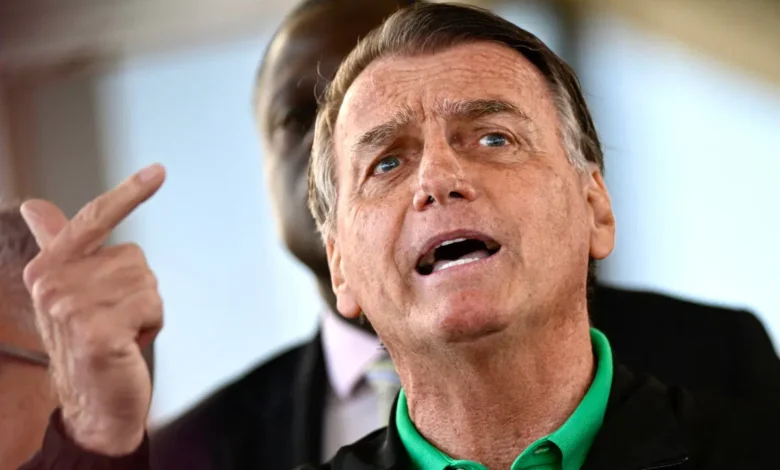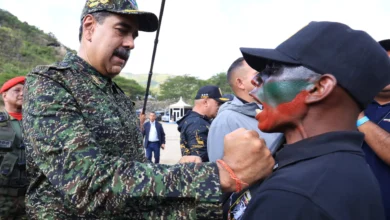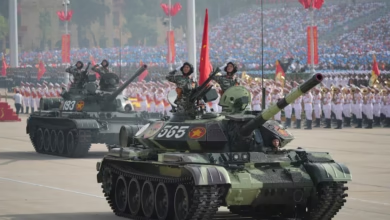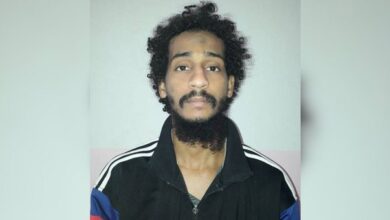Brazil’s former president Bolsonaro Under Home Arrest as Supreme Court docket Faces Stress Over Coup Allegations

Brazil’s former president Jair Bolsonaro is now under house arrest, following a ruling by the country’s Supreme Court. The court cites multiple violations of judicial restrictions, particularly his use of indirect communication to mobilize political support. This development marks a critical point in the ongoing investigation into Bolsonaro’s alleged role in a coup plot, placing Brazil’s judiciary in the center of a high-stakes legal and geopolitical confrontation.
Justice Alexandre de Moraes, the judge overseeing Bolsonaro’s legal troubles, emphasized that the former president blatantly ignored previous restrictions. These included orders to refrain from using third-party digital communication and engaging with social media indirectly. Moraes underscored that the former president communicated with crowds via his son Flávio, a sitting senator. The incident was captured in a since-deleted video, used as critical evidence in the recent ruling. According to Moraes, this clearly demonstrates an intent to subvert judicial authority and misuse public sentiment to his advantage.
The fallout was swift. Bolsonaro’s legal team denied violating any court order and immediately signaled intentions to appeal. Yet the court’s reaction was far from symbolic. Restrictions imposed on Bolsonaro include a complete ban on mobile phone usage, both directly and through intermediaries, as well as limitations on receiving visitors except legal counsel or court-approved individuals.
Justice Moraes’ rhetoric was unusually pointed: “Justice is blind, but it is not foolish,” he wrote. This phrase captured the prevailing sentiment in Brazil’s judiciary, that political immunity should not be mistaken for legal invincibility. The restrictions are part of a broader court effort to contain Bolsonaro’s influence during an ongoing investigation into whether he encouraged foreign political actors to intervene in Brazil’s judiciary. This accusation indirectly references Bolsonaro’s relationship with Donald Trump, the former US president who has publicly backed him.
That support from Trump has sparked a cascade of geopolitical reactions. Last month, Trump imposed a 50% tariff on Brazilian goods, citing what he termed a “witch-hunt” against Bolsonaro. Ironically, the US currently enjoys a trade surplus with Brazil, making the tariffs appear less about economics and more about political signaling. Trump’s move also included sanctions on Justice Moraes, branding him part of the so-called persecution effort.
The US State Department took a contrasting position. In a statement issued on X (formerly Twitter), it condemned the court order, stating unequivocally that the US “will hold accountable all those aiding and abetting sanctioned conduct.” The lack of alignment within the US government with Trump operating as an external agitator and official channels advocating for legal accountability mirrors the fractured international optics of the case.
Domestically, Bolsonaro continues to command significant public loyalty. Pro-Bolsonaro rallies erupted across Brazilian cities, suggesting that despite the legal heat, his influence has not waned. During one such rally in Rio de Janeiro, Flávio Bolsonaro placed his father on speakerphone for supporters, an act that triggered additional legal scrutiny. The move was not only a breach of legal directives but also a deliberate challenge to the authority of the Supreme Court.
The court, for its part, sees this as a line-crossing moment. Moraes cited this act as one of many that show Bolsonaro’s deliberate intent to test the boundaries of judicial patience. It’s not just about social media anymore this is about control, precedent, and the message it sends to future political leaders. If left unchecked, the court fears that such actions could irreversibly damage Brazil’s democratic institutions.
There’s an added layer of risk. Bolsonaro’s restrictions were partly justified on grounds that he was encouraging Trump to interfere in Brazil’s judiciary. While no evidence has been formally presented that Trump acted on Bolsonaro’s behalf, their historic alignment, including White House meetings in 2019 and repeated public endorsements, continues to blur the line between national justice and international politics.
Trump’s decision to impose punitive tariffs further escalated the diplomatic strain. It forced Brazilian exporters into an unexpected economic squeeze and polarized opinions within Brazil’s political ecosystem. While some factions view the court’s actions as necessary for institutional preservation, others see it as judicial overreach driven by political vendetta.
In a broader context, Brazil is navigating a delicate tightrope. On one side is the imperative to enforce the rule of law and preserve judicial credibility. On the other is a populist figure whose political base remains deeply committed, and whose international allies have the capacity to complicate Brazil’s economic and diplomatic agenda.
The Supreme Court’s move to impose house arrest may appear like a firm stance, but it’s also a gamble. With Bolsonaro’s legal team poised to challenge every move, and his supporters ready to mobilize, Brazil could see an escalation before resolution. Already, Bolsonaro has faced prior sanctions including a court-imposed curfew and an ankle monitor. These efforts to control his influence are part of a larger containment strategy, one that risks becoming unsustainable if public demonstrations swell or if international pressure mounts.
The ultimate question remains: can institutional authority hold its ground when political charisma, global connections, and populist fervor converge? For now, Brazil’s Supreme Court is betting on the strength of its legal framework. But Bolsonaro’s political machinery, fueled by domestic unrest and foreign support, is far from running out of steam.
Bolsonaro’s Legacy, the Court’s Burden, and the International Chessboard
The court’s restrictions on Bolsonaro are not just legal maneuvers; they are attempts to reaffirm judicial supremacy in a time of political turbulence. They also expose how domestic governance can be deeply influenced by external actors. The Bolsonaro-Trump axis complicates the Brazilian judiciary’s efforts to keep the matter within national boundaries.
Whether Bolsonaro violated the restraining orders may be contested in appellate courts. But what’s not in dispute is the increasing overlap between politics and justice, both in Brazil and beyond. The weight of legal systems to hold high-ranking officials accountable now depends not just on facts and laws, but also on international sentiment, economic consequences, and media narratives.
For now, Jair Bolsonaro is confined within the walls of his residence. Yet outside, the machinery of influence continues to turn. It is not merely a Brazilian legal story; it is a geopolitical test of how democracies enforce justice when up against globalized populism.
Read More: LAD REPORTING




